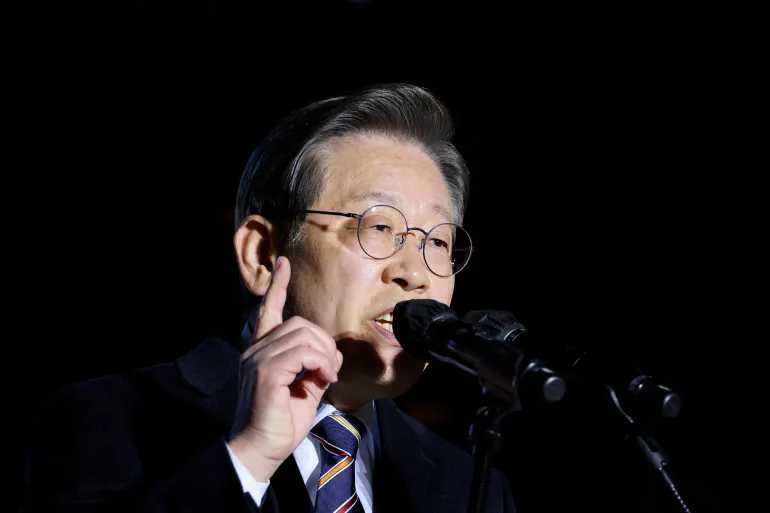Man Sentenced to 15 Years in Prison for Stabbing South Korean Opposition Leader Lee Jae-myung
In a significant legal decision, a South Korean man has been sentenced to 15 years in prison for stabbing Lee Jae-myung, the then-opposition leader, in the neck. This incident, which occurred in January, sent shockwaves through the nation and raised concerns about political violence and security during election periods. The regional court’s ruling brings some closure to a case that has gripped the public’s attention for months.
The attack on Lee Jae-myung was carried out ahead of the April 10 parliamentary elections. The assailant was charged with attempted murder and election law violations. Prosecutors had originally sought a 20-year prison sentence, arguing that the severity of the crime warranted a longer period of incarceration. However, the court ultimately decided on a 15-year sentence, taking into account various factors including the defendant’s intent and the impact of the crime on both the victim and society.
Lee Jae-myung, a prominent figure in South Korean politics, was leading the opposition at the time of the attack. The stabbing incident not only endangered his life but also highlighted the risks faced by public figures in highly charged political environments. Fortunately, Lee survived the attack, although it required immediate medical attention and a period of recovery.
The assailant’s motives were a point of intense scrutiny during the trial. It was revealed that the attacker had a history of political grievances and was motivated by a desire to influence the upcoming elections. This aspect of the case underscored the importance of ensuring the safety and security of political candidates and the need for stringent measures to prevent such violent acts.
The court’s decision to sentence the attacker to 15 years in prison reflects the seriousness with which the judiciary views crimes of this nature. Attempted murder, particularly in a politically charged context, is seen as a direct attack on the democratic process and the rule of law. By imposing a substantial prison sentence, the court aims to send a strong message that such actions will not be tolerated and that perpetrators will face severe consequences.
This case has also prompted a broader discussion about election security in South Korea. In the wake of the attack on Lee Jae-myung, there have been calls for increased protection for political candidates and stricter enforcement of election laws. Ensuring a safe and secure environment for political activities is crucial for the functioning of a healthy democracy, and this incident has highlighted the need for ongoing vigilance and proactive measures.
Public reaction to the sentencing has been mixed. While many agree that the 15-year prison term is appropriate given the severity of the crime, some have expressed concerns that it might not be sufficient to deter similar acts in the future. Others believe that the sentence is a fair balance between punishment and the potential for rehabilitation.
Lee Jae-myung, now a prominent political figure, has continued to advocate for political reform and increased security measures for public officials. He has emphasized the importance of addressing the root causes of political violence and ensuring that democratic processes are protected from such threats.
In conclusion, the sentencing of the man who stabbed South Korea’s opposition leader Lee Jae-myung to 15 years in prison marks a significant moment in the country’s legal and political landscape. It underscores the importance of safeguarding democratic processes and the rule of law, while also prompting a necessary dialogue about election security and the protection of public figures. As South Korea moves forward, the lessons learned from this case will be crucial in preventing similar incidents and ensuring a safe and secure environment for all political activities.

